On having gigantic boobs
My tits are like a 34G or something like that. I don’t know anymore because I don’t wear a bra, but I remember them being a G. I used to try to squeeze myself into DDD bras, the largest you can get in “straight” sizes, before realizing I had to pay for the expensive speciality bras for gigantic boobs. Then, around 5 years ago I stopped wearing bras altogether.
My breasts contribute significantly to the way I am treated in the world, the way I am seen and understood, and the treatment of my breasts has resulted in trauma and a dissociated relationship with them. I am writing this as an explicit attempt to move back into embodied relationship with my breasts, by first telling the story of how I have been treated.
When I was a kid I went to a school with a sexist dress code. Girls weren’t allowed to wear tank tops because our bra straps were exposed. This policy was enforced and girls frequently got into trouble for not covering up. I was taken to the principal’s office multiple times and told I had to wear things from the lost and found to cover my shoulders. My parents disagreed with the dress code and went into the school to talk to the staff about it. At one meeting, my parents were asking if there had ever been a complaint made that this dress code was in response to. The staff responded that “if a kid brings a knife to school, you don’t wait for him to use it to institute a policy.” My thirteen year old breasts were compared to a knife.
That year, in grade eight, after recess when everyone was bustling about getting into their seats, a boy in my glass grabbed the front of my shirt and pulled it and my bra down in front of the whole class. Mortified, I ran out of the classroom. The teacher did nothing and when I came back into the class I found that he had just started teaching as if nothing had happened. A girl in my class passed me a note to ask me if I was okay. The teacher intercepted the note and reprimanded us for passing notes. I got up and yelled at him that I had just had my shirt pulled down in front of the entire class. In response he sent both me and the boy who pulled down my shirt to the office. The principal suspended the boy from school for a week, but told me that it wasn’t entirely his fault. “There’s the issue of your shirt” she said. My shirt wasn’t even in violation of the dress code. It was a long sleeved shirt with a square neckline. But it didn’t matter. The issue she was referring to wasn’t my shirt — it was my body.
This was all happening in a larger context of violent sexualization. I was receiving nonstop unwanted sexual attention from my grandfather whenever I had the misfortune of being around him. The boys in my school snapped the girls’ bra straps “as a joke” and laughed at us. Eventually a game started to be played called “Are you nervous?” in which boys would start by touching our arms and end up totally feeling us up. The girls went along with this behaviour, walking the fine line of receiving the all important male attention without crossing over into the realm of “slut.” I was used to eyes on my body — boys and men. Sexual violence was a constant looming threat, and the larger culture, like my school, located the cause of danger in my body rather than in the behaviours of boys and men.
As I grew older it became clear that I not only had breasts, I had particularly large breasts. My experience of this type of body is that I am constantly sexualized. Large breasts scream sex. No matter what I wear, I am seen as sexual in a way that a woman with small breasts would not be. There’s a certain type of man that is “obsessed” with large breasts, and being with these men is often extremely dehumanizing. My breasts are treated like a fetish object rather than a part of my body. There are other men who make a point of not being into large breasts, in part because of their association with porn, bimbos, and blow up sex dolls. I have often felt like I am caught in a situation where I am either valued or devalued based on my proximity to the archetype of the insatiable, mindless fuck doll, an archetype that I do not relate to or desire to be associated with.
In queer world, large breasts immediately land me in the category of “femme”, even though I am not particularly femme. I don’t wear make up and I prefer a low maintenance, practical expression of gender. But the classic look of dyke androgyny is not accessible to me because my breasts are coded as hyper feminine. On a practical level, I can’t wear a lot of clothes because my unruly breasts will slip out. The “cut your t-shirt into a tank top” look, so beloved by punks, doesn’t work for me because the long arm holes cannot contain my breasts and they will slip out the side. For this reason I found my own way of cutting t-shirts into halter tops that still look ragged and punk but keep my breasts secure.
I always believed that I had to wear a bra but I hated the way bras felt and the way they piled my breasts up into giant perky mountains. I like the low hang of my free breasts, but for most of my life I bought into the mythology that I needed to spend hundred of dollars to tame and shape my breasts. First of all I was told that not wearing a bra would be painful at my size (not true), and secondly, I was terrified of the attention, the stares, the disapproval. But one year I developed psoriasis under my breasts and found wearing a bra very painful so I stopped. And I have never gone back.
I feel nervous about what will happen when I have a baby and start breast feeding. Not only will my breasts get even larger, but I will have to navigate the weird experience of breast feeding in public in a culture that wants to maintain breasts as sex objects, and I will have to do so with breasts that are particularly hyper sexualized.
Once I checked out an SLAA meeting (Sex and Love Addicts Anonymous) and listened to a man complain that women should not come to meetings dressed “provocatively” because it is like bringing alcohol to an AA meeting. I was wearing a t-shirt, but t-shirts on me are provocative because my giant boobs are still giant and unless I wear a very oversized t-shirt, their form is very present and visible.
I once submitted this photo as my headshot for a class I was teaching. I was told that it was “a bit seductive” for a headshot. Like?? What? I am standing there wearing a t-shirt. I can’t imagine a man wearing a similar outfit and standing in a similar pose being called seductive. I also think it is unlikely that a woman with smaller breasts wearing a t-shirt would be called seductive.
I believe that the sexist condescension that cancellers treat me with, constantly ridiculing me, laughing at me, and calling me stupid, is at least partly rooted in our inability to imagine intellectualism coming from bodies that look like mine. Not only am I a woman, but I have the type of body that is associated in the cultural imaginary with hyper femininity, vapidity, and literal sex dolls. The “bimbo” trope is always presented with giant boobs. The intellectual whose ideas we should take seriously is never imagined that way.
Several times when I have complained about the way I am treated and perceived due to my large breasts, people have suggested that I get a breast reduction. I can’t tell you how insanely fucked up it is that a bunch of different people, including strangers, have asked me if I’ve considered surgically making my breasts smaller. No one seems to think it’s fucked up to do this. For the record — it’s extremely fucked up to ask someone if they’ve considered surgically altering their body because they’ve expressed frustration with the way they are treated. I’ve also had people slide into my dms to share about their own dysphoria and disgust with their breasts and how a reduction or total top surgery helped, and while I respect people’s right to do what they want with their own bodies, I have not expressed dysphoria or disgust with my breasts. I am talking about the way I am treated and the way it makes me feel. It is not okay to suggest or imply that I should consider surgically altering my body.
When I was 24 and drunk at Occupy Toronto, I agreed to share a tent with a man I’d been drinking with. I was wasted and passed out. The next morning, I woke up to him feeling up my breasts under my shirt. When I was 35, I went to get a massage and the massage therapist slowly started touching my breasts until he was actually feeling me up, as I lay frozen on the table.
In a recent relationship, my partner frequently made comments about my large breasts, including in public. One evening, in my room, he pulled my breasts out of my shirt, and when I started protesting and saying that I wanted to get up and get water, he told me that he would do what he wanted (a nod to the BDSM that we did practice in our relationship, but which never included consensual nonconsent). I told him my bedroom door was open and I wasn’t comfortable and he continued to say he could do what he wanted. I finally pulled up my shirt and left the room. When I came back I lied down with my clothes on, away from him, and turned off the light to go to sleep. He started feeling me up again saying he wanted to “play with my boobs” while I fell asleep. In the morning when I confronted him on this he told me he was used to a “free access” arrangement with his other partners — a porn trope in which a man can do whatever sexual act he wants to a woman at any time with no negotiation or consent practice. My ex misused BDSM to justify sexist and sexually violent behaviour, something that is becoming increasingly common in a “sex positive” culture stripped of attunement practices and feminist analysis. The fetishization of my breasts in this relationship, and their disconnection from my body and my personhood, has continued to have an impact on me.
All of this has left me feeling totally dissociated from my breasts, like they aren’t a part of my body. I have difficulty feeling sensation in them. I have difficulty connecting my sexuality to them. I fear the unwanted attention they receive. I hate the way I am associated with specific dehumanizing porn fantasies. I don’t appreciate the hyper feminization of breasts or the lack of freedom in my gender expression imposed on me as a result. I want people to stop darting their eyes to my breasts like they feel compelled to look at them in the middle of a conversation. I want people to stop randomly suggesting that I get surgery. I want to be taken seriously as an intellectual because I am one. I don’t want to feel anxious about the way my breasts are being perceived when I jump and run and dance and move through the world. I don’t want to be fetishized. I don’t want to be treated like a sex object. I don’t want to be seen as more sexual than anyone else because of the way my body looks.
I want my breasts to be a part of my body, and my gender, without all the hyper sexualization and cultural baggage attached. I want my lovers to be attracted to my breasts as part of me — not cut off, fetishized, objectified. I want the trauma of objectification and sexual violence to melt away. I want to be inside my body, feeling myself from the inside. I want large breasts to be just one type of human body possibility that doesn’t mean anything at all. I want to be treated as fully human. I want to feel whole.
Announcements and new things
Talking Shit with Amber A'Lee Frost: The Bourgeoisie Have All the Carrots and Potatoes
Book Club with Tara and DJ: 'The Ministry for the Future' by Kim Stanley Robinson
The eyes looking back: a collection of essays on feminism, anger, boundaries, and grief.
Reclaiming Our Power: A special workshop for women by Clementine Morrigan at Breitenbush Hot Springs in Oregon, USA, in March 2024 — Limited spots available.
Contemporary Spirituality: Meaning and Mysticism in the Modern Age (Upcoming course I’m teaching in) — Use the code TEACH-CS-MORRIGAN for a discount.
Books are open for April for The Stuck Places are Portals (Sliding scale available)
One on one generative conversations with me on areas of your life where you feel stuck. Once you purchase your session you will receive a link through which you can schedule your spot. Available times may vary and spots may not be available for a few weeks or more, but you will have access to the first available spot once you've booked.
What these sessions are not: a quick fix, a replacement for therapy, an ongoing supportive relationship.
What these sessions are: a generative hour long conversation to discuss an area of your life that you want help shifting, a space for creating next steps and new beginnings, a compassionate space of witnessing and attention, an opportunity to access a new perspective, and a way to connect to further resources.
Areas where I hold a lot of experience and knowledge: trauma recovery, nervous system work, attachment theory, relationships, stressful dynamics within partnerships, polyamory, sexuality, finding your purpose / life calling, making big changes, creative practice, self-employment, cancel culture and the aftermath of you or a loved one being cancelled, integrity, responsibility, recovering from people pleasing, growing into your personal sovereignty, cracking open shame, and the sacred practice of boundaries. I am also willing to bring my knowledge and attention to whatever you bring to discuss.
If you have wanted the opportunity for an extended conversation with me about something going on in your life, now is your chance.
Things I’m reading, listening to, watching or thinking about lately
On Being with Krista Tippett: Rick Rubin: Magic, Everyday Mystery, and Getting Creative
The Courage to Be Yourself: Virginia Woolf on How to Hear Your Soul
Featured from the shop
A new zine! Available in hard copy and digital.
The eyes looking back is a collection of essays on feminism, anger, boundaries, and grief. Wide ranging in their inquiries, these essays touch on the subtle sexism of self-proclaimed feminist men, the difficulty of expressing desire and setting boundaries in the aftermath of childhood trauma, the psychiatrization of trauma and the junk science of the DSM, the experience of sexual assault through negligence rather than malicious intent, and the grief and pain of constrictive gender roles, heteronormativity, and objectification. These essays are compassionate and curious while insisting on the importance of anger and the necessity of telling the truth.
List of essays
When you say I seem angry, I get more angry: Why your anti cancel culture fave is still a fucking feminist
The substitutes we accept for love
Sexual assault through negligence
As forcefully as the moment demands: On boundaries, anger, and messy break ups
I'm so angry, I don't think it will ever pass
The humiliation of desire: On asking for what I want
Other people's disappointment
The eyes looking back: On my refusal to be an object and what this can sometimes make men feel
Clementine Morrigan is a writer and public intellectual based in Montréal, Canada. She writes popular and controversial essays about culture, politics, ethics, relationships, sexuality, and trauma. A passionate believer in independent media, she’s been making zines since the year 2000 and is the author of several books. She’s known for her iconic white-text-on-a-black-background mini-essays on Instagram. One of the leading voices on the Canadian Left and one half of the Fucking Cancelled podcast, Clementine is an outspoken critic of cancel culture and a proponent of building solidarity across difference. She is a socialist, a feminist, and a vegan for the animals and the earth.
Browse her shop, listen to her podcast, book a one on one session with her, or peruse her list of resources and further reading.


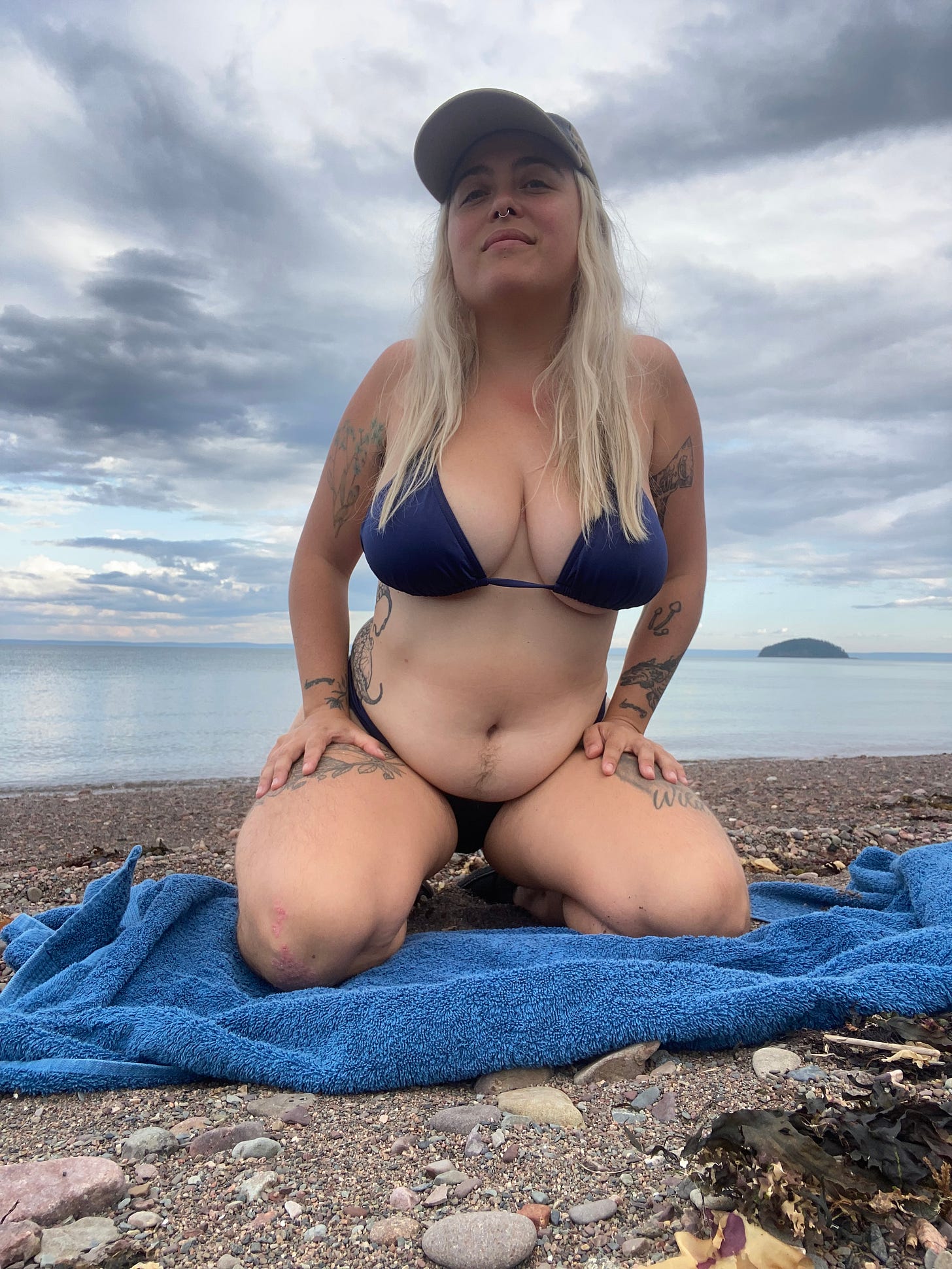
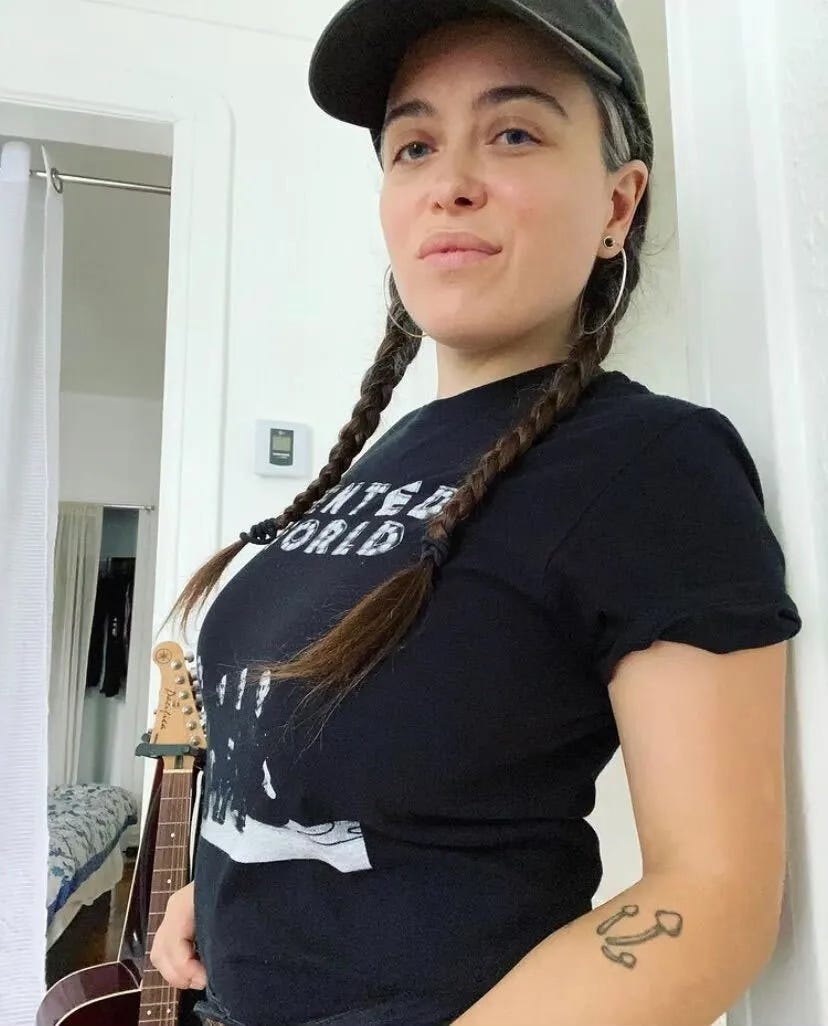
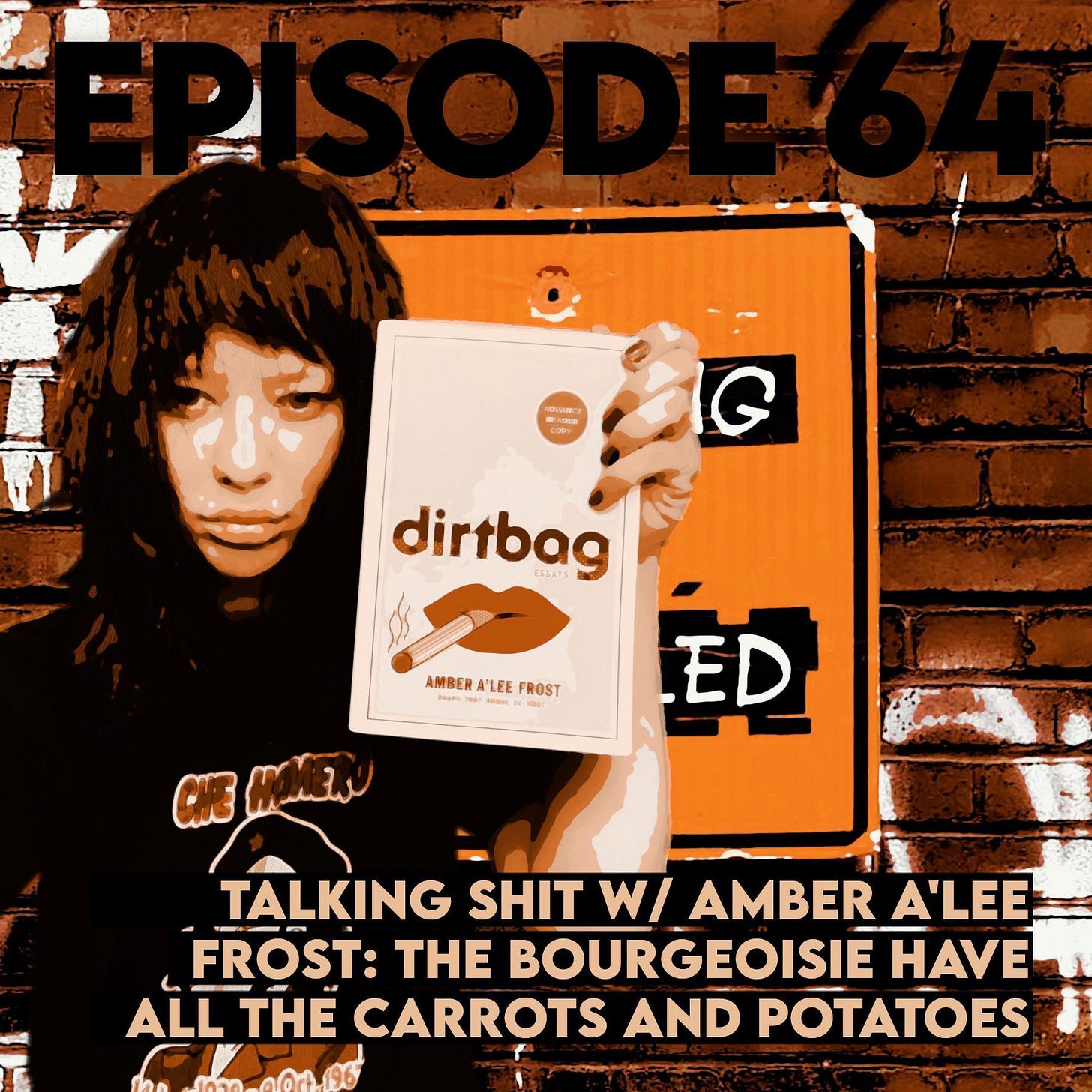
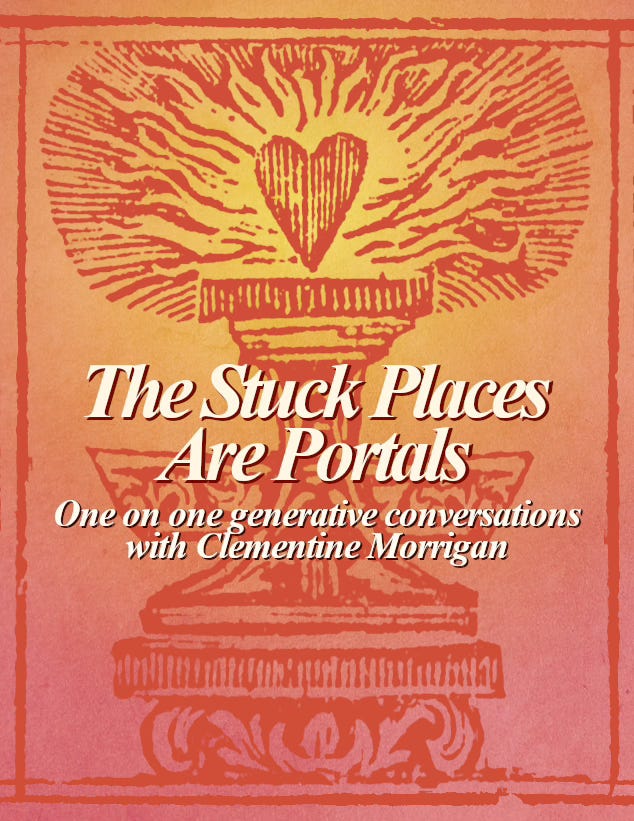
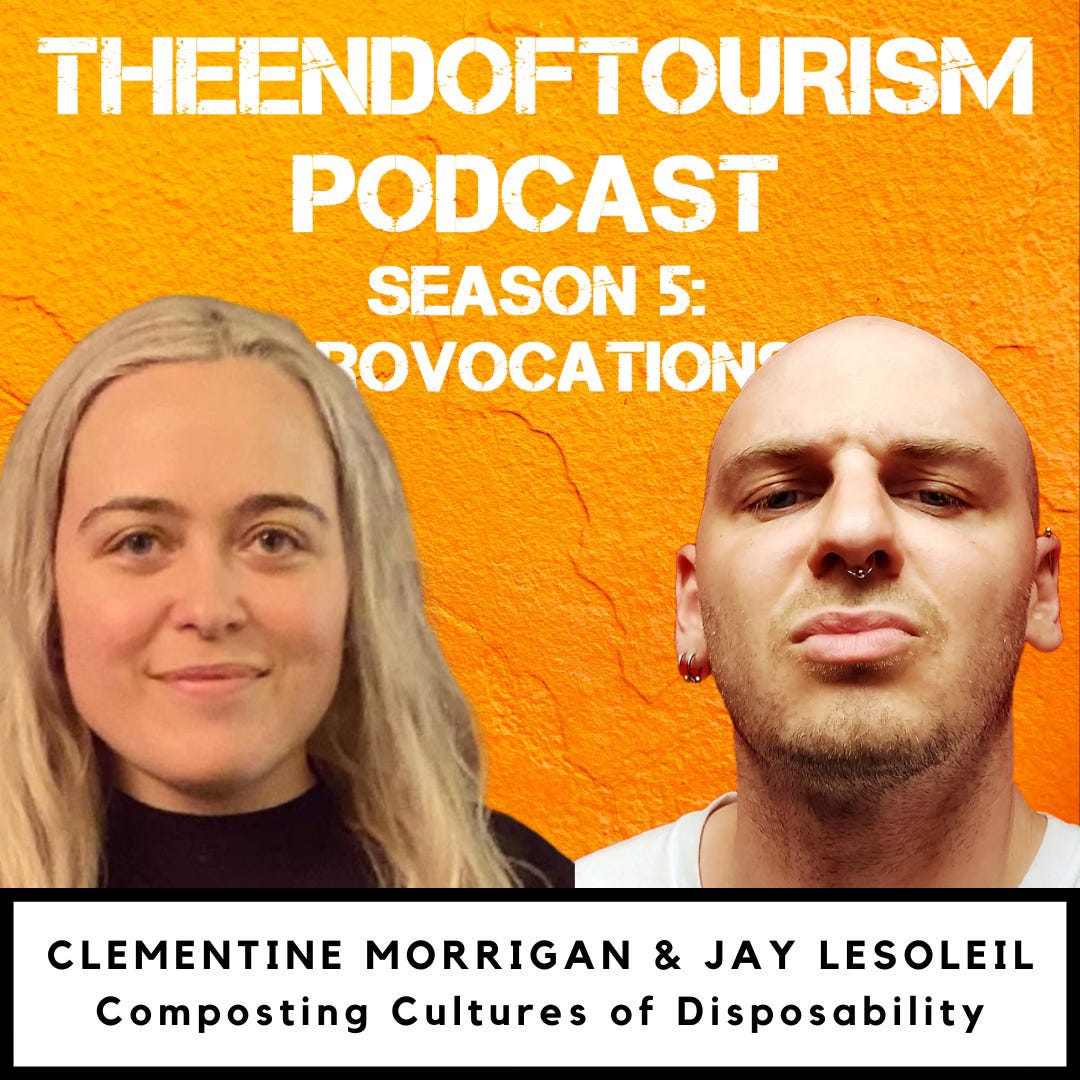
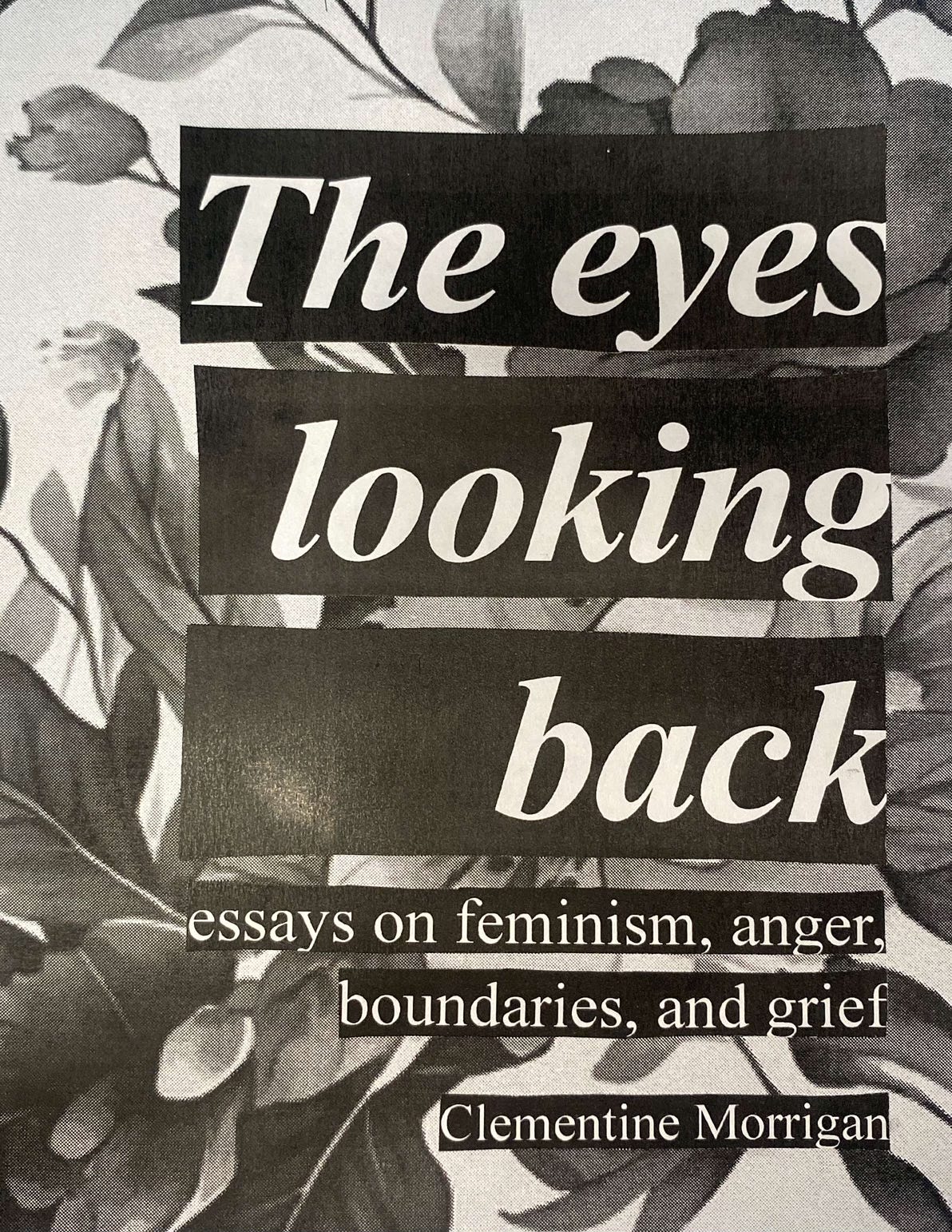
i was reading this like, have i EVER had an original experience?! 32F — when i was in middle school a boy called my boobs “inflatable” and i stood up and said he’d done that and the teacher sent ME out of class. later the teacher told me that someday that boy would want to date me and that i should be flattered. (???)
and so many parallels in queer world. i don’t feel feminine, but i end up wearing a lot of more feminine things or the things i wear are coded more feminine because of how i look.
I have 36 FF boobs so obviously I relate very hard to this 😭😭😭 I will never forget at 24 when I had a job give me a gift card so I could buy “more professional clothes” (aka don’t wear v-necks that show off your cleavage even though they’d probably look normal on someone with a smaller chest). I like my big boobs but I don’t always want them to be sexualized